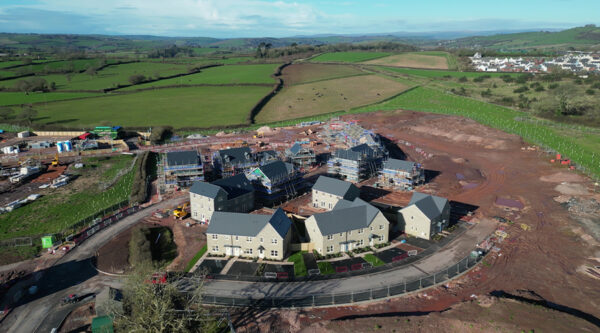

Statutory Biodiversity Net Gain (BNG) went live on Monday 12 February 2024. We consider what you need to know about this update.
The basics of the regime
This new law will mark the introduction of a mandatory requirement that all developments achieve an improvement in biodiversity of at least 10%.
There will be a staggered roll out of BNG, initially capturing developments of more than 10 dwellings and of sites of more than 1 hectare. This could mean that we see a rush to submit applications prior to that date to avoid the requirement.
For smaller developments of less than 10 dwellings or commercial developments with a floor space of less than 1000 square metres within sites of less than 1 hectare, BNG will not go live until 2 April 2024. Whereas for the largest of developments, Nationally Significant Infrastructure Projects, we await a confirmed date but this is likely to be January next year
Some parts of the country are already accustomed to the delivery of BNG due to local policy requirements. For others, this will be totally new. In all instances, there will be new requirements and procedures introduced to the planning process.
There will also be a clear emphasis upon designing proposed development around the biodiversity on the site. A hierarchy will apply to preserve the on-site biodiversity where possible and, only if that is not possible, to look further afield to off-site solutions, with the last resort being the purchase of statutory credits.
The delivery of BNG will initially be secured by way of a planning condition to be discharged prior to the commencement of development. The condition will require Herefordshire Council and all other Local Planning Authorities across England to approve a Biodiversity Gain Plan in respect of each planning application. That Plan will only be approved by the Local Planning Authorities once they are satisfied that the BNG has been legally secured. The method will depend upon the nature of the biodiversity improvement and whether is it located on or off-site. In most instances, this will require a legal agreement to ensure the BNG is secured for a period of 30 years.
There are some limited instances where BNG will not be required, such as householder applications and self-build and custom build developments of up to 9 dwellings, subject to meeting certain requirements.
What does this mean?
While the legislation and guidance clearly prefer on-site BNG delivery, this will limit the profitable development that can be undertaken within an application site and, in turn, is likely to reduce the value and perhaps viability of the scheme. Not to forget that these sites and schemes may have been in the pipeline for many years and potentially without factoring in the added cost of BNG.
As a consequence, in at least the short-term, it is expected that there will be a high demand for off-site gain sites to allow developers to purchase credits via the private market.
There will be a statutory credit available as a very last resort where it can be evidenced that there are no other on or off-site solutions available but this will be costly.
Is this a new opportunity?
For landowners, potentially yes.
There is not a prescribed or standard approach to pricing BNG units in the private market and so each deal will be negotiated in its own right. The market will fluctuate according to the nature of biodiversity needed, the extent of management required and will vary in each locality.
There are a number of factors for landowners to consider in negotiating a deal, not only to take account of the sterilisation of the use of their land and cost of ongoing management for at least 30 years, but also in terms of tax implications, impact upon public subsidies and whether the land is or can be charged in the future to secure finance.
There will also be important questions as to liability and who will be responsible if things go wrong. Or, whether it is possible to maximise returns by ‘stacking’ with phosphate credits (in Herefordshire, nitrates elsewhere in the country) or carbon credits.
Therefore, while there is an opportunity presented by this regime, it will be critical to obtain advice at an early stage to ensure that all of the potential implications of entering a scheme are considered.










